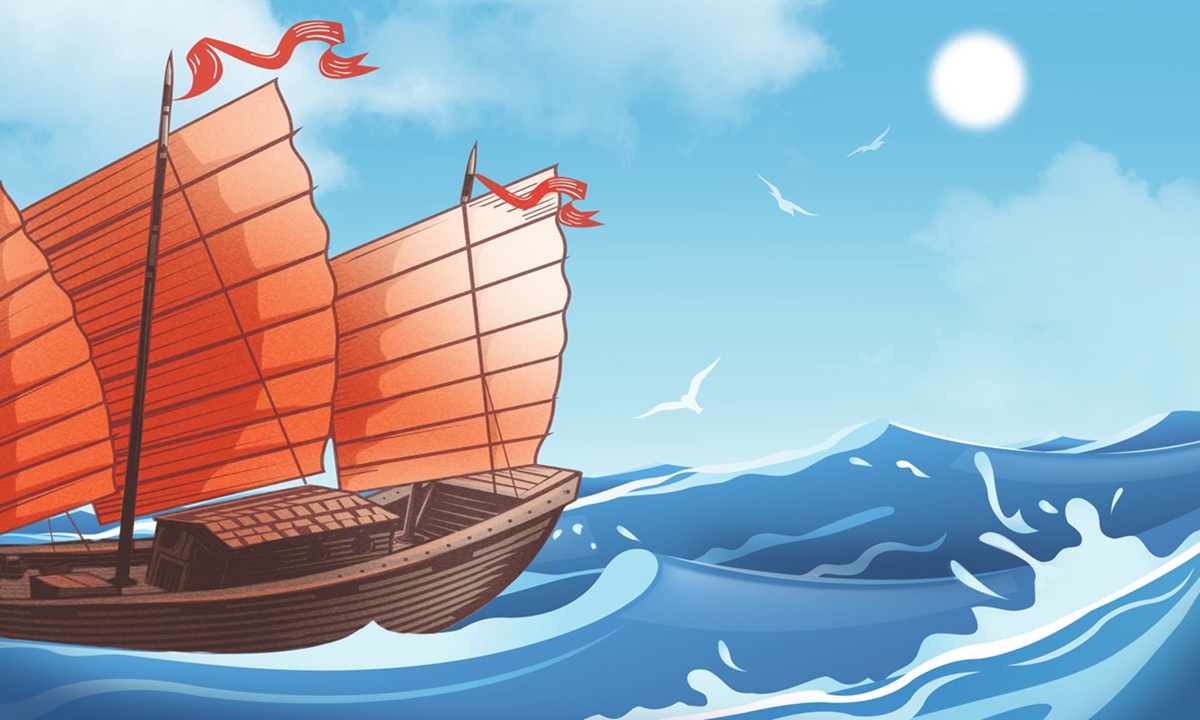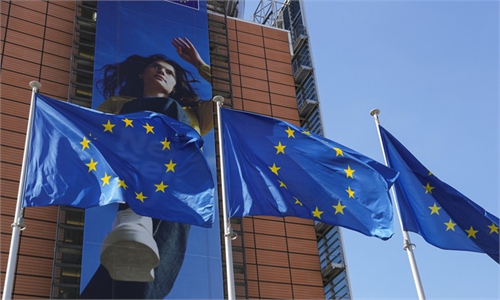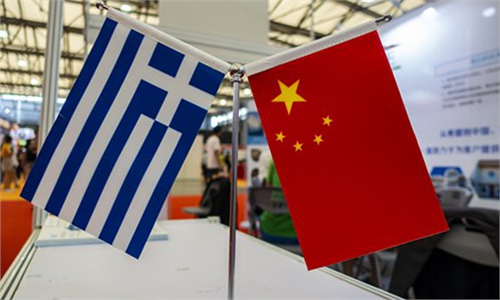Multilateralism, cooperation to spare the world of a new cold war: former Greek FM

Illustration: Liu Rui/GT
Editor's Note:
George Katrougalos, former foreign minister of Greece, called on China and Europe to insist on multilateralism and develop mutual beneficial relations between nations, in an exclusive interview with the Global Times. Katrougalos hailed the leadership of the Communist Party of China in achieving miracles of development and fighting poverty. He also called the EU to act against the specter of a new 'cold war' between the West and China. Following is the full transcript of the written interview between Katrougalos and Global Times reporters Yu Jincui and Li Aixin.
GT: This year marks the 100th anniversary of the founding of the Communist Party of China (CPC). How would you comment on the development and achievement of the CPC? Some Western scholars had long predicted the "collapse" of the Party. But those predictions turned out to be wrong. Where do you think the resilience of the CPC comes from? Why do you think the West is hesitant to get to know CPC objectively?
Katrougalos: China is again gaining the central historical role which it always had through human history. It has achieved miracles of development and fighting against poverty under the leadership of the CPC. However, the rise of China has triggered a fear in circles of both politicians and academics in the West related to the so-called "Thucydides' trap." This is a term popularized by American political scientist Graham Allison to describe an apparent tendency toward war when an emerging power threatens to displace an existing power. This fear goes together with theorizations and prophesies of a "clash of civilizations," which would result in an inevitable conflict with the West, especially the US and China. The CPC should respond by insisting on multilateralism and harmonious, mutual beneficial relations between nations, without seeking a hegemonic role for China.
GT: One of the advantages of the Chinese system is its tradition and ability to make long-term planning and design for the country, like 5-year or 10-year plans. But this is often misunderstood by the West. How do you understand China's long-term national plan?
Katrougalos: China has achieved levels of growth unprecedented in human history and lifted over 750 million people out of poverty, accounting for more than 70 percent of the global alleviation of poverty. These achievements have been possible only after a well prepared, organized effort, through long-term national planning.
GT: In your recent interview, you mentioned the long-term communication between Syriza, Greece's second largest party, and the CPC is going on. It did not take a pause even during the pandemic. There have been people-to-people interactions and online communications. Is there any moment, or achievement of those communications between Syriza and the CPC that have left you deep impression?
Katrougalos: Despite representing different civilizations, I find many common elements in the mentality of Chinese and Greek people. In our communications, this was obvious, together with mutual respect and an eager interest in learning from our different experiences. However, online exchanges have their limitations. I hope in the future to be able to repeat the face-to-face contacts and promote further the bilateral relations.

George Katrougalos
GT: In your previous interview with Global Times, you said that Europe is rarely speaking with one voice and when it does, it does not speak strongly. "I personally fully support the ideas of 'European sovereignty,' as additional to the national one and its 'strategic autonomy.'" Now the US is attempting to build an anti-China alliance. Facing US pressure to jointly suppress China, how should the EU maintain its strategic autonomy? Do you have specific suggestions?
Katrougalos: The European Union should act against the specter of a new "cold war" between the West and China. As I have said in my previous interview, I firmly believe that we can avoid similar scenarios by insisting on multilateralism based on international law, full respect of human rights, sovereignty and self-determination of all countries. The European Union should have an autonomous standing in all global issues and should promote policies of peace, protection of human rights and ecology, against climate crisis. We have a long road, however, before achieving such an autonomous, efficient and strong European foreign policy.
GT: A growing number of countries and regions are now confronting a new wave of COVID-19. Do you think the pandemic has impacted geopolitics? If yes, what is your biggest concern?
Katrougalos: As a global event, COVID-19 has serious repercussions on geopolitics. In the first waves of it some countries adopted an isolationist, nationalist approach, sometimes called "vaccination nationalism." Others, like Cuba for instance, have responded in a quite different way, sending doctors and vaccines abroad to poorer countries. The president of Syriza and former prime minister of Greece, Alexis Tsipras, has suggested that all citizens in all countries, even the poorest, should have access to vaccines, without intellectual property rights unduly hinder their production and availability.
Regarding the bilateral relations between China and Greece, the pandemic deepened the threads of cooperation between the two countries. On the occasion of delivering 18 tons of medical supplies of aid to Greece, and in order to describe the ties between our two peoples, Chinese Ambassador to Athens Zhang Qiyue wrote an op-ed in a Greek newspaper entitled: "A single soul of empathy dwelling in our bodies." It is a quote by Aristotle which describes the best of Sino-Greek friendship.
GT: The US government directed its intelligence organs which do not have scientific ability to do the origins-tracing job. Does it indicate that the US views origins-tracing as a political matter rather than a scientific one? Why did the report fail to give an answer the US has wanted?
Katrougalos: I am against any unjustified politicization of the pandemic, as, for instance, the accusations, sometimes coming from high-ranking officials, claiming that COVID-19 was a "Chinese virus." The international community should follow science and stand by WHO and its scientific endeavors to trace the origins of the pandemic.


